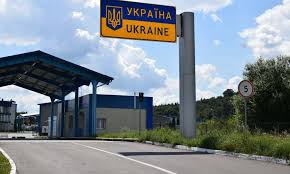The law on the cancellation of the moratorium on customs inspections entered into force
Introduction
Today, May 16, 2024, Law No. 3613-IX "On Amendments to the Customs Code of Ukraine and other laws of Ukraine regarding the peculiarities of customs control and customs clearance of certain categories of goods" entered into force. This law introduces important changes in the field of customs control, canceling the moratorium on customs inspections that was introduced during martial law.
Basic provisions of the law
According to the new law, temporarily, from May 1, 2024 until the termination or abolition of martial law in Ukraine, customs authorities will resume conducting documentary checks of compliance with the requirements of Ukrainian legislation on customs matters. This includes checking the timeliness, authenticity and completeness of the calculation and payment of customs payments.
Peculiarities of inspections
The law establishes a number of features that customs authorities must follow during inspections:
Acts (certificates) on the results of inspections: Acts on the results of documentary inspections, cross-checks, objections to inspection reports and tax notices-decisions, the delivery procedure of which was not completed by February 24, 2022, must be sent (delivered) by July 1, 2024 .
Inspection conditions: From May 1, 2024, inspections are carried out under safe conditions, in particular:
Secure access to financial and accounting documents, reports, contracts, declarations, calculations and other documents related to operations of import or export of goods.Safe access to production, warehouse, trade and other premises of the enterprise in case of on-site inspections.
The possibility of taking samples and/or samples of goods.
Carrying out an inventory of fixed assets and commodity values that were or are under customs control.
Stopping checks
Documentary checks that have been started, but cannot be completed due to the lack of safe conditions, may be stopped by the decision of the head of the customs authority or a person performing his duties. Such a decision may also be made upon a reasoned application of the taxpayer. The period of inspection suspension is not included in the total inspection period.You may be interested in the following articles: Analysis, consultation, evaluation. legal analysis of the situation, lawyer's consultation, lawyer's consultation, analysis of documents, legal analysis of the situation, written consultation, verification of documents by a lawyer, lawyers' documents, lawyer's help online, lawyer online, legal opinion, legal opinion of a lawyer, lawyer online.
Practical implications for business
The restoration of customs inspections has a significant impact on business, especially on enterprises engaged in foreign economic activity. Here are some key aspects to consider:
1. Preparation for inspections
Businesses need to prepare for possible document checks by ensuring safe access to all necessary documents and premises. This includes financial and accounting documents, reports, contracts, declarations, etc.
2. Interaction with customs authorities
It is important to keep in constant contact with the customs authorities for timely information about any changes and requirements. This will help avoid misunderstandings and ensure proper compliance with legal requirements.
3. Documentation of processes
Enterprises should keep all documents confirming their activities in the field of foreign economic activity, as well as inspection reports, objections to reports and other relevant documents. This will allow us to quickly respond to requests from customs authorities and avoid possible fines.
4. Risk assessment
Businesses should assess the risks associated with customs inspections and develop action plans in case of violations. This includes analyzing potential penalties and developing a strategy to avoid or minimize them.
5. Improvement of staff qualifications
It is important to ensure training and advanced training of employees responsible for customs operations and interaction with customs authorities. They must be aware of the latest changes in legislation and be able to respond effectively to the requirements of customs authorities.
Conclusion
The resumption of customs inspections is an important step to ensure compliance with the requirements of customs legislation under martial law. Law No. 3613-IX establishes clear rules and conditions for conducting such inspections, which will contribute to increasing transparency and responsibility in the field of customs affairs.
For businesses, this means the need to adapt to new conditions and prepare for possible inspections. It is important to ensure the appropriate level of readiness, interaction with customs authorities and compliance with the requirements of the law. This will help avoid possible problems and fines, as well as ensure the stable operation of enterprises in the difficult conditions of martial law.

































